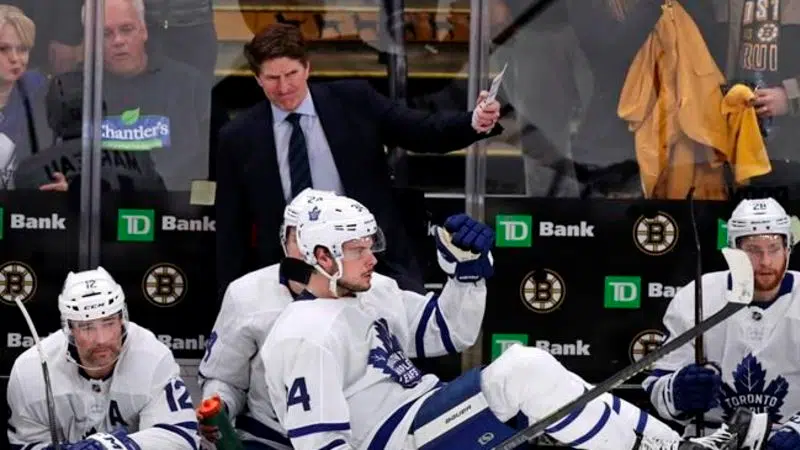
Analysis: In a series with razor-thin margins, a look at why the Leafs lost
BOSTON — Maple Leafs head coach Mike Babcock used the word “opportunity” over and over again when discussing his team’s playoff rematch with the Boston Bruins.
Toronto wound up missing a big one against its Atlantic Division rival.
The Leafs lost in seven games for the second consecutive season on the same TD Garden sheet of ice Tuesday night.


